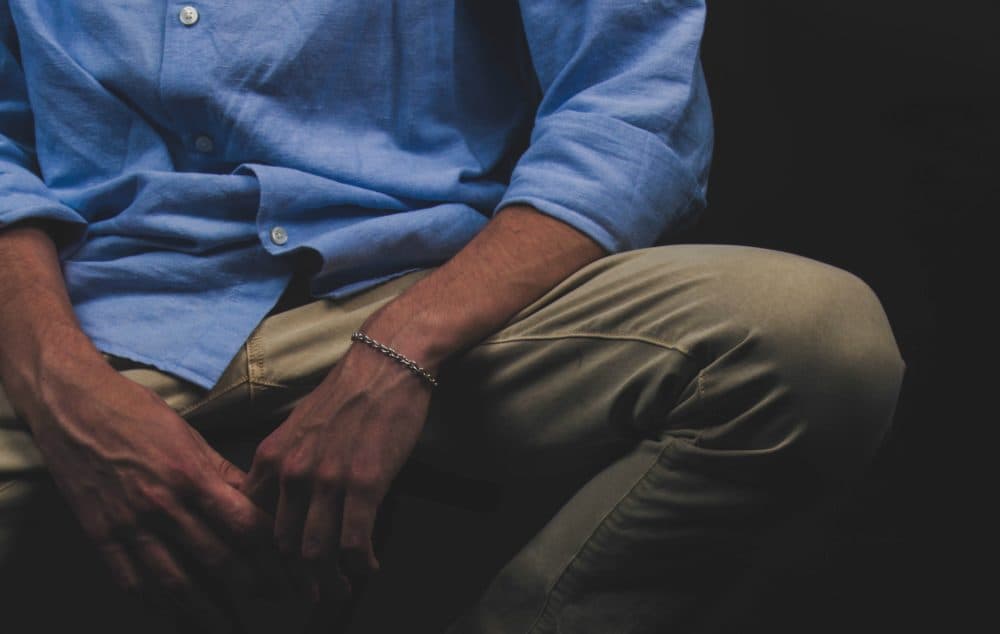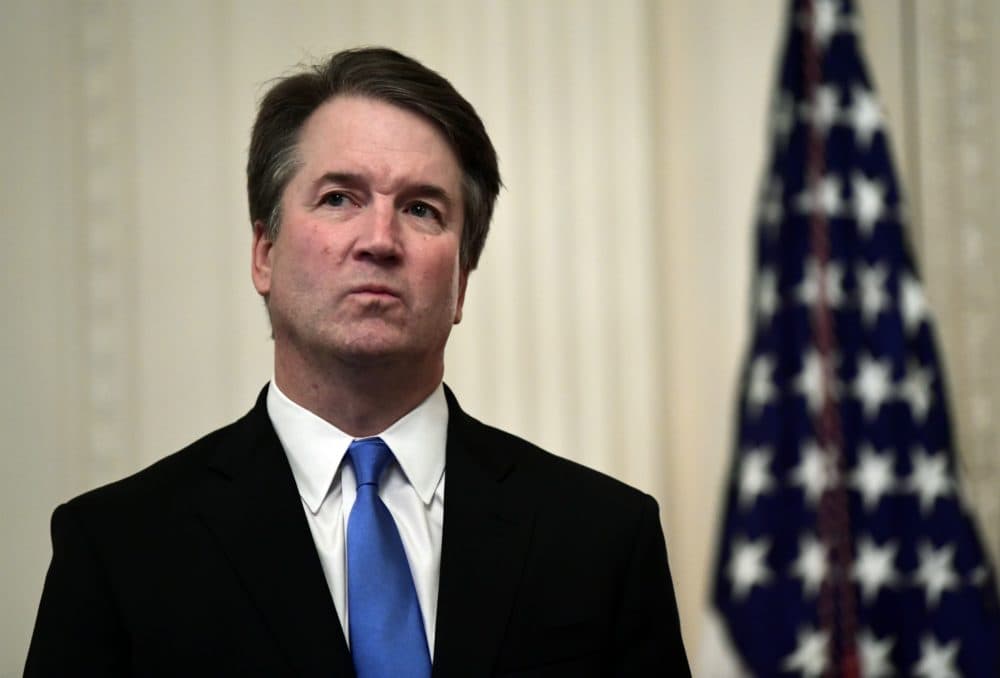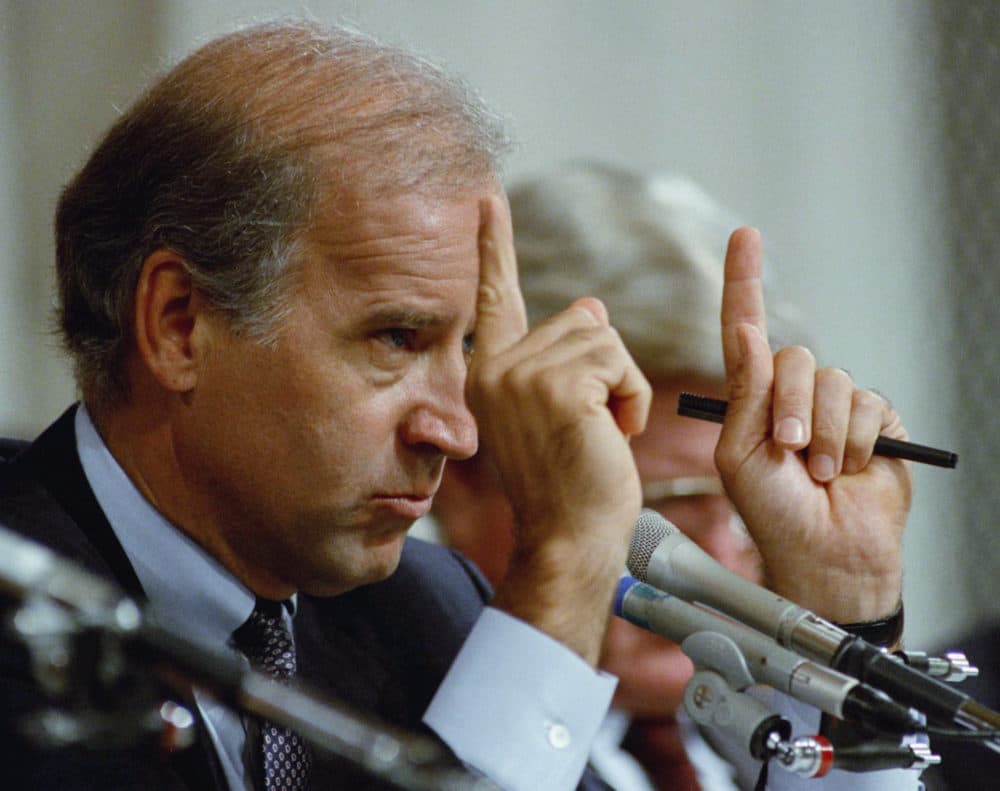Advertisement
Commentary
The Power Of A Good Apology

In the past year, we’ve seen many (mostly) women come forward with statements about harmful sexual experiences.
Dr. Christine Blasey Ford’s testimony of her alleged assault by Brett Kavanaugh was a model of a steady, credible accusation. In response, we've seen a range of reactions — from perfunctory public statements or pseudo-apologies (Louis C.K. comes to mind) to President Trump’s recommended course of deny deny deny, and attack.
I am a seasoned clinical psychologist. I advocate for apologies, their place and their power. For 35 years, I’ve guided partners, family members, friends and co-workers to heal hurt and repair breaches in their connections. I am admittedly a “hope merchant,” in that I believe re-connection is often possible. But I also have found that making amends requires personal accountability.
It’s not easy to apologize well, but it’s not mysterious either.
A recent episode of The Daily podcast presented a story about a high school sexual assault that had serious consequences for the victim, Caitlin Flanagan. But she also described the remorse her assailant later expressed. He took full responsibility for his harmful behavior, which she believes is why she hasn’t felt tormented across the years.
In my experience, anyone can make a mistake — even an egregious one. More women than men live with the worst consequences of sexual harm, but their recovery is also influenced by how past wrongdoing is handled in the present moment. Men who have acted in hurtful ways live with an erosion of humanity that can be ameliorated by the courageous action of a humble apology.
It’s not easy to apologize well, but it’s not mysterious either.

In amends of any scale, the steps are the same.
You must first understand the other person’s injury, which usually requires listening and sometimes inquiry. You can’t really apologize if you don’t see and feel another’s hurt.
Second, you must make a personal statement of empathy and regret, as well as acknowledging any harmful actions, even if unintentional. Nothing about your motives or goodness is part of this process.
Third, you must make whatever restitution you can, to make up for the harm.
And fourth, you must take realistic and committed measures to prevent the hurt from happening again.
Men who have acted in hurtful ways live with an erosion of humanity that can be ameliorated by the courageous action of a humble apology.
All four steps can be challenging, but that’s one reason why it’s hard to fake them. Among other benefits, a sincere and thorough apology lets the recipient know she’s been heard.
After Kavanaugh’s divisive confirmation process, and as we mark the anniversary of the #MeToo movement, men have an opportunity to step up.
They can work to change the ingrained pattern of male sexual entitlement. They can call out other men who offend, teach their sons and other boys to be respectful, and support survivors who try to tell their stories. Most pointedly, it behooves good men to make whatever repairs they can related to their own regrettable behavior, like the young man whose apology made such a difference to Ms. Flanagan.
Rarely have we seen a public figure make such an effective statement of personal responsibility. Imagine how different our view would be today if now Justice Kavanaugh had said something like, "I don’t remember doing anything like that, but as a teenager and young man, I was often intoxicated and I did behave badly at times. I hope I didn’t hurt you. But, if I did, I am deeply sorry for all the pain my awful behavior caused you."
We can all think of well-known men who owe someone an apology for their sexual behavior. Bill Clinton and our current president might top the list. We could add Justice Thomas and the dozens of powerful men called out by the #MeToo movement. Many of these haven’t admitted wrongdoing, much less made a real apology. (Currently, many, including Matt Lauer and Charlie Rose appear to be preparing their professional comebacks.)

A man who may be closer to doing the right thing is former Vice President Joe Biden, who has expressed regrets about his behavior in the 1991 Supreme Court hearing. I don’t mean to equate his Committee behavior with sexual assault, but he’s stated that he owes Ms. Hill an apology. He has yet to deliver a personal, thorough one.
Even though Biden’s regret is probably partly linked to his political viability, a sincere mea culpa lifts a spiritual burden from the apologizer, as well as helping the survivor heal and recover. Seeing him face his error can help the rest of us — especially men who are rethinking their past behavior — find the courage to address our own misdeeds. He may be the model we need, a public figure who takes responsibility for his participation in a culture that mistreats women.
There are so many harms we can’t do anything about. There are terrible inequities and brutal mistreatments that are not possible to repair. But that doesn’t mean we shouldn’t do what we can to make wrongs right, or at least righter. With an effective apology, everybody benefits.
